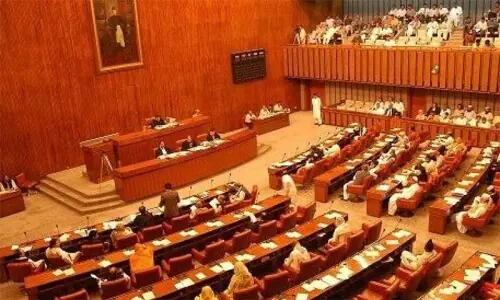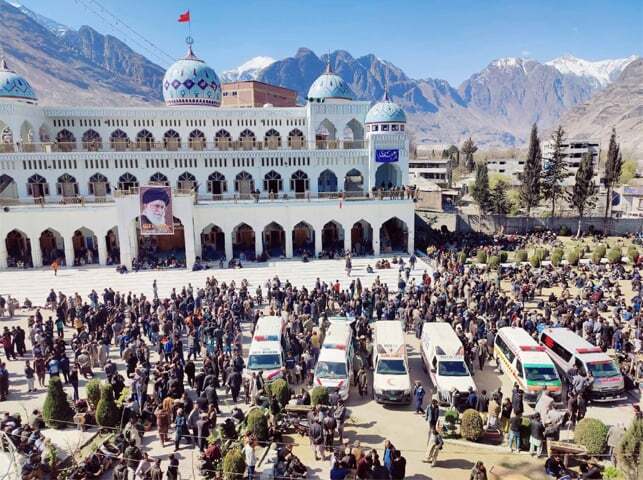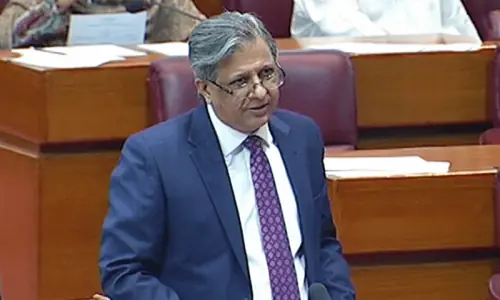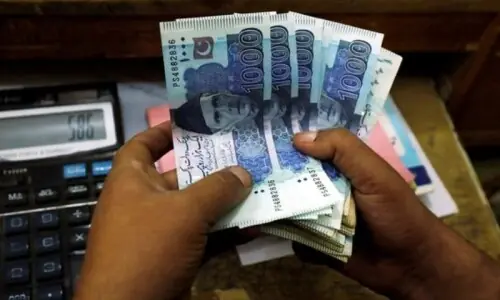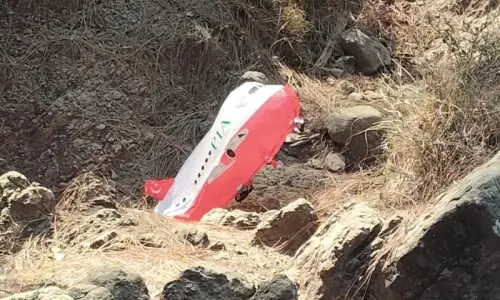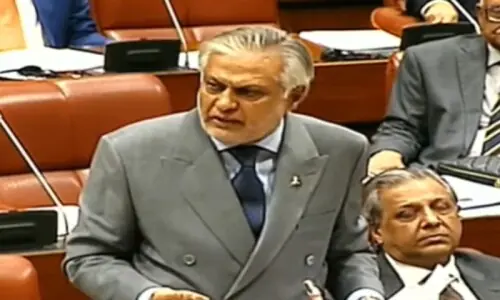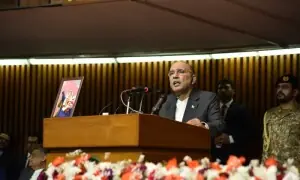HARIPUR, June 9: The union councils of Bait Gali and Nara Amazai, Haripur district, lack basic amenities like roads, potable water, healthcare and schools, because of negligence on the part of successive governments, a survey of these areas reveal.
Situated in the northwestern part of the district, bordering the districts of Swabi and Buner, the 30,800 residents of these councils have no direct road link to the district headquarters Ghazi.
If a villager wants to go by road to Ghazi, it takes him five hours to reach there by travelling in an open pick-up (the only mode of transport available) through hilly tracks.
The other option available is to travel across 60km territory of district Swabi which takes two and a half hours. According to UC Bait Gali Nazim Khurshid Khan, efforts were undertaken to build a road in the mid-eighties when foreign agencies allocated funds for the development of poppy-growing areas.
A few kilometres of land was levelled for the purpose. However, the project was abandoned half way through and at present there is no road network for 95 per cent people of the area.
The nazim, however, claimed that the district government of Haripur had approved funds for a road project, which would largely benefit the people of Swabi and these two union councils in particular.
A visit to villages in these union councils shows that the absence of a road network is not only hampering the government campaign to rid these areas of poppy crop, but is also encouraging farmers to cultivate poppy in connivance of unscrupulous officials in the inaccessible hilly areas.
It was observed that villagers of these underdeveloped areas, which used to be part of former princely state of Amb until 1972, had no other option but to grow poppy as they did not have means to take up farming or cattle rearing even on a small scale due to abject poverty coupled with lack of incentives from the government side.
Healthcare facilities in these areas are also inadequate as people have to take patients to district Swabi on 'cherpoys' through difficult hilly terrain. Mules and donkeys are commonly used for the transportation of goods in these areas.
Buildings of one rural health centre and five basic health units were constructed some times ago but they are in a derelict state as there is no doctor or medicine available to treat patients.
Natural springs are the only source of potable water for the entire population and when they become dry in the hot and dry weather, people fetch water on donkeys and mules from far-flung areas.
According to official sources, there are 31 primary schools for girls - 12 in UC Nara Amazai and 19 in UC Bait Gali. Also, there are eight Masjid schools, seven middle schools for boys, three high schools and 55 primary schools for boys in the two union councils.
These schools were built under the Gadoon Development Project in the mid 80s when the then government offered poppy growers an incentive package to dissuade from growing poppy.
However, due to absence of teaching staff almost all girls schools have been lying closed for the last three years. The statistics available with the district education department show that the state of girls education was particularly low.
It was learnt that only 24 girls got admission to 31 primary schools of these UCs during 2002-03, while 95 per cent of these schools failed to enrol even a single girl student last year either because of reluctance on the part of people to send their daughters to school or because of indifferent attitude of education authorities who reportedly transferred 95 per cent of women teachers on political influence.
In 55 primary schools for boys 2,399 students enrolled during 2002-03, while in Masjid schools enrolment of 200 boys and girls was recorded. When contacted, District Nazim Dr Raja Amer Zaman and MNA Omar Ayub Khan expressed their resolve to bring these underdeveloped areas on a par with the developed ones.
Amer Zaman said that funds were allocated equally among all union council nazims including these two UCs during the current fiscal year. In the new fiscal year the district government would focus its attention on the development of these areas, he added.
Omar Ayub Khan said work for the construction of a road network, provision of potable water, electricity and telephone facilities would be undertaken during the next fiscal year.

